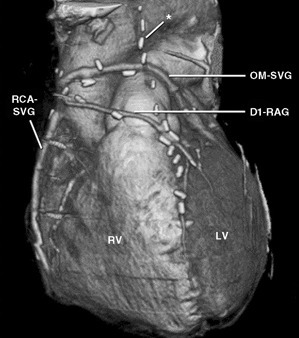Experts advise caution on TAVI heart procedure: Study
by
Carol Ko, Staff Writer | December 21, 2012

TAVI procedures are a
new alternative to open heart valve replacement.
A new heart procedure recently approved by the FDA is gaining traction among patients who can't undergo standard valve surgery, though experts caution that more evidence needs to be gathered on its risks and complications.
Up until recently, open heart aortic valve replacement has been the only treatment available for patients with aortic stenosis, a condition in which narrowed heart valves constrict blood flow to the heart. If left untreated, aortic stenosis can lead to heart failure or sudden death. Though approximately 300,000 patients in the United States suffer from aortic stenosis, one-third of these patients were ineligible for treatment because they faced high risk for surgical complications.
Now, transcatheter aortic valve implantation (TAVI) offers a less invasive alternative for these patients. In this procedure, a valve is implanted via catheter through the femoral artery in the upper leg or between the ribs. Its recovery time-averaging one to two weeks-is roughly half that of open-heart surgery. Nearly 45,000 patients have already received the TAVI treatment worldwide. However, the expansion of TAVI to patients who are eligible for surgery is still a point of debate among surgeons.
A study by nonprofit organization ECRI institute analyzed clinical studies following 3,798 patients who received the valve, showing that while it had clear benefits for inoperable patients who had few other options, more research needs to be done to determine the benefits and risks of the treatment for other patients.
"Using TAVI for high-risk or immediate-risk patients still needs to be monitored, as there is a lack of consistent evidence that suggests a clear benefit over standard open aortic valve replacement," said Vivian Coates, vice president of information services and health technology assessment at ECRI Institute.
For health care professionals, the treatment's riskiness isn't the only factor to consider. Implementing a TAVI program is a costly investment, requiring a hybrid operating room with sophisticated imaging equipment and enough space to accommodate a multidisciplinary team of anesthesiologists, cardiac surgeons, interventional cardiologists, and technicians.
|
|
|
You Must Be Logged In To Post A Comment
|
